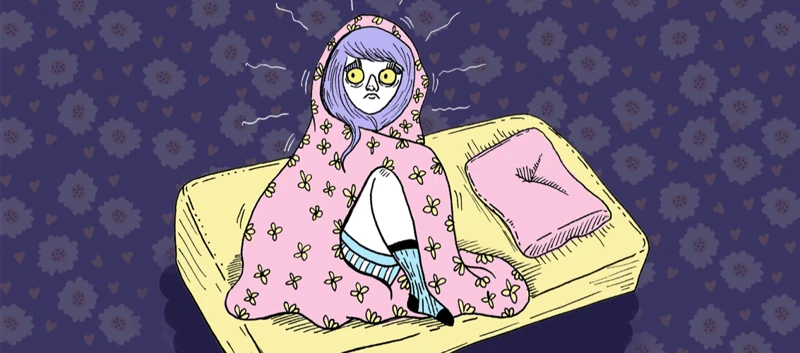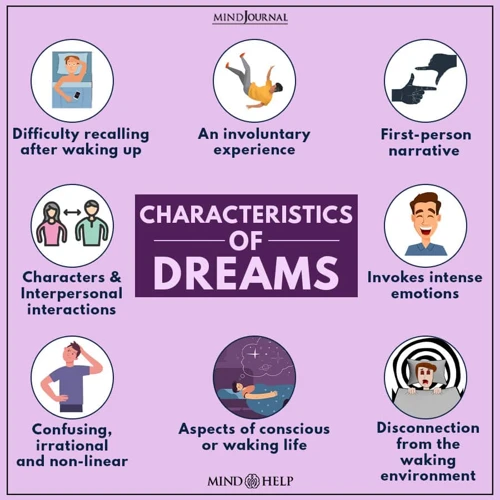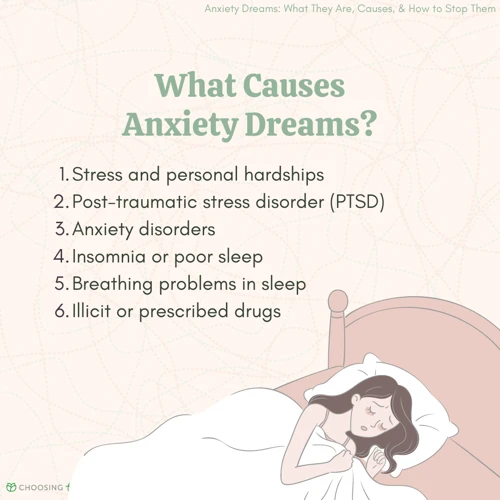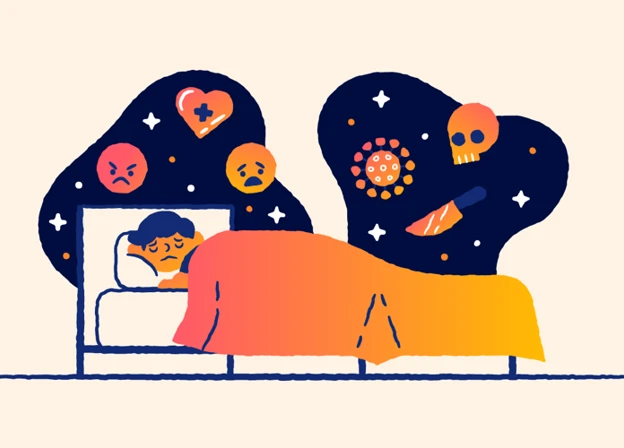Welcome to a journey into the fascinating realm of nightmares and their connections to stress and anxiety. As unsettling as they can be, nightmares have long been a subject of intrigue and exploration. This article aims to unravel the intricate links between stress, anxiety, and nightmares, shedding light on the impact they can have on our sleep and mental well-being. By delving into the definition and characteristics of nightmares, as well as understanding the causes and effects of stress and anxiety, we can begin to comprehend how these factors intertwine in the realm of dreaming. Along the way, we will explore the neurological processes involved in dreaming, examine the influence of stress and anxiety on dream content, identify common nightmares triggered by these emotions, and provide strategies for managing stress and anxiety to reduce the frequency and intensity of nightmares. Whether you’ve experienced nightmares firsthand or are simply curious about the subject, this article aims to equip you with knowledge and tools to navigate the intricate relationship between stress, anxiety, and nightmares.
The Basics of Nightmares

Nightmares possess an enigmatic quality that makes them simultaneously captivating and unsettling. Defined as vivid and distressing dreams that often elicit fear, anxiety, or a sense of danger, nightmares have been a subject of fascination throughout history. They typically occur during REM (rapid eye movement) sleep, the stage of sleep associated with vivid dreaming. During a nightmare, individuals may experience intense emotions, vivid imagery, and a narrative that may involve threatening or disturbing situations. Nightmares can vary in frequency and intensity, with some people experiencing them occasionally while others may be plagued by recurrent nightmares. Understanding the basics of nightmares can help shed light on their significance and the impact they can have on our well-being. By exploring the characteristics and definition of nightmares, individuals can gain insights into their own experiences and seek strategies to manage them effectively. If you’re interested in learning more about nightmares in children, click here. To delve into the causes of nightmares and strategies for managing them, click here. For a deeper understanding of sleep paralysis nightmares, click here.
Definition and Characteristics of Nightmares
Nightmares are vivid and distressing dreams that occur during REM (rapid eye movement) sleep and evoke feelings of fear, terror, or anxiety. They often involve threatening situations or scenarios that may seem surreal yet provoke genuine emotional responses. The content of nightmares can vary widely, ranging from personal fears and traumas to more universal themes like being chased, falling, or being trapped. Being able to recall the details of a nightmare upon waking is another defining characteristic. Unlike regular dreams that may fade from memory quickly, nightmares tend to leave a lasting impression. They can be vividly remembered, making them all the more haunting.
Nightmares can be distinguished from night terrors, which are more intense episodes that occur during non-REM sleep and typically involve sudden waking with intense fear or panic, often accompanied by physical symptoms like rapid breathing and increased heart rate. Unlike night terrors, nightmares tend to occur later in the sleep cycle during REM sleep.
The frequency of nightmares varies from person to person. Some individuals may experience them infrequently, while others may have recurrent nightmares that disrupt their sleep on a regular basis. Factors such as stress, anxiety, trauma, medication, and certain sleep disorders can contribute to the frequency and intensity of nightmares.
It is important to note that nightmares are a normal part of the dream cycle and are not considered a disorder unless they significantly disrupt an individual’s sleep patterns and overall quality of life. In such cases, it may be necessary to seek professional help and intervention.
Understanding the definition and characteristics of nightmares provides a foundation for exploring their connection to stress and anxiety, as well as developing strategies for managing and minimizing their impact on our well-being.
Understanding Stress and Anxiety

Understanding stress and anxiety is crucial in comprehending their influence on nightmares. Stress is a natural response to challenging situations, triggering the body’s “fight-or-flight” response and releasing stress hormones such as cortisol. While short-term stress can be beneficial, chronic stress can have detrimental effects on physical and mental health, impacting sleep patterns and increasing the likelihood of nightmares. Common causes of stress include work pressure, relationship issues, financial difficulties, and major life events. On the other hand, Anxiety is a persistent feeling of unease or fear, often accompanied by physical symptoms like restlessness, rapid heartbeat, and difficulty concentrating. It can be triggered by various factors, such as trauma, phobias, or generalized anxiety disorder (GAD). Both stress and anxiety can disrupt the normal sleep cycle, leading to increased dream activity, including nightmares. By recognizing and addressing stress and anxiety triggers, individuals can take steps towards managing their impact on sleep and reducing the occurrence of nightmares.
Causes and Effects of Stress
Causes of Stress: Stress can stem from a multitude of factors, and its causes can vary greatly from person to person. Common triggers include work-related pressures, financial difficulties, relationship problems, academic demands, major life changes, and traumatic events. Additionally, external factors such as noise, pollution, and overcrowding can contribute to feelings of stress. It is essential to recognize that while certain situations may be inherently stressful, individuals may also have unique stress responses based on their personality, coping mechanisms, and past experiences.
Effects of Stress: The effects of stress can manifest in various ways, impacting both our physical and mental well-being. Physically, stress can lead to headaches, muscle tension, digestive issues, changes in appetite, and decreased immune function. Prolonged exposure to stress hormones, such as cortisol, can also increase the risk of developing chronic conditions like heart disease and diabetes. On a mental and emotional level, stress can cause irritability, anxiety, restlessness, difficulty concentrating, and mood swings. Sleep disturbances, including nightmares, are also commonly associated with elevated stress levels. It is crucial to address and manage stress effectively to prevent these harmful effects from taking a toll on our overall health and quality of life.
Causes and Effects of Anxiety
Anxiety can stem from various causes and manifest itself through a range of effects, influencing our mental and physical well-being. The causes of anxiety can be multifaceted, including genetic predispositions, environmental factors, and past traumatic experiences. Individuals with family members who have a history of anxiety disorders may be more prone to experiencing anxiety themselves. Additionally, high-stress environments, such as demanding work or personal relationships, can contribute to anxiety. Traumatic events, such as accidents or emotional abuse, can also trigger anxiety disorders. Once anxiety takes hold, it can have profound effects on our daily lives. Emotionally, anxiety can result in excessive worry, restlessness, irritability, and difficulty concentrating. Physically, anxiety can cause a rapid heart rate, trembling, sweating, shortness of breath, and stomach discomfort. Sleep disturbances, including insomnia and nightmares, are common as well. The effects of anxiety can be pervasive and debilitating, impacting our overall quality of life. Understanding the causes and effects of anxiety is crucial in developing effective coping mechanisms and seeking appropriate treatment.
The Link Between Stress, Anxiety, and Nightmares

Stress and anxiety have a profound impact on various aspects of our lives, including our sleep and dreaming patterns. When it comes to nightmares, stress and anxiety play a significant role in their occurrence and intensity. Research has shown that individuals experiencing high levels of stress and anxiety are more likely to experience nightmares regularly. This connection can be attributed to the influence these emotions have on our brain activity and arousal levels during sleep.
Stress, characterized by feelings of pressure, tension, and overwhelm, activates the body’s stress response system, which releases hormones like cortisol. This heightened state of stress can lead to disrupted sleep patterns, making individuals more prone to experiencing nightmares. Additionally, stress can increase the frequency and vividness of dreams, amplifying the intensity of frightening or distressing dream content.
Anxiety, on the other hand, is characterized by excessive worry, apprehension, and fear. Anxiety can lead to increased arousal and hypervigilance, making it difficult for individuals to relax and enter a restful state during sleep. This heightened state of alertness increases the likelihood of nightmares occurring.
Stress and anxiety often coexist, creating a potent combination when it comes to nightmares. The two emotions can feed off each other, creating a cycle where stress leads to anxiety, which in turn leads to more stress, ultimately contributing to the frequency and intensity of nightmares.
It’s crucial to note that the link between stress, anxiety, and nightmares is complex and multifaceted. While stress and anxiety can increase the likelihood of nightmares, nightmares themselves can also perpetuate feelings of stress and anxiety, creating a vicious cycle. Understanding this connection is essential in addressing and managing both the underlying emotions and the nightmares themselves. By implementing stress and anxiety reduction techniques, individuals may experience a decrease in nightmare frequency and intensity, leading to improved overall sleep quality and well-being.
How Stress and Anxiety Impact Dreaming

Stress and anxiety are two powerful emotions that can deeply influence the content and experience of our dreams. When we are under stress, our brains often remain hyperactive even during sleep, leading to an increased likelihood of intense and vivid dreams. The emotional unrest caused by stress can manifest in dreams as chaotic scenarios, conflicts, or even nightmares. Anxiety, on the other hand, can contribute to an overactive mind that is prone to rumination and worrisome thoughts. This mental state can infiltrate our dreams, resulting in themes of unease, fear, or impending doom. Stress and anxiety can disrupt the natural sleep cycle, affecting the balance of REM and non-REM sleep, which can impact the frequency and intensity of dreaming. It is crucial to acknowledge how these emotions impact our dreaming experiences, as understanding the link between stress, anxiety, and dreaming can aid in developing strategies to foster more peaceful and restorative sleep.
Neurological Processes in Dreaming
Dreaming is a complex phenomenon that involves intricate neurological processes within the brain. Several regions and structures play crucial roles in shaping our dreams and allowing us to experience vivid and sometimes bizarre scenarios during sleep.
1. The Frontal Cortex: This region of the brain is responsible for executive functions, such as decision-making, problem-solving, and logical thinking. During dreaming, the frontal cortex becomes less active, which can lead to a suspension of the critical thinking and reality checking that often occurs during wakefulness. This reduction in frontal cortex activity contributes to the surreal and illogical nature of dreams.
2. The Limbic System: The limbic system, including the amygdala and hippocampus, plays a significant role in processing emotions and memory formation. During dreams, these structures continue to function, which explains why emotions are often heightened during dream experiences. The amygdala, specifically, is responsible for the emotional intensity and emotional content present in many dreams.
3. The Brainstem: The brainstem, particularly the pons and medulla, plays a crucial role in regulating sleep stages and REM sleep, during which dreams predominantly occur. The pons is responsible for inhibiting muscle activity during REM sleep, preventing us from physically acting out our dreams. The brainstem is also involved in the activation of the pontine-geniculo-occipital (PGO) waves, which are thought to be associated with the visual content of dreams.
4. The Occipital Cortex: The occipital cortex, located at the back of the brain, is primarily responsible for processing visual information. During REM sleep, the occipital cortex becomes highly active, leading to the generation of visual imagery and the visualization of dream scenarios.
These neurological processes work together to create the vivid and often surreal experiences we encounter during dreaming. The reduced activity in the frontal cortex allows for the suspension of disbelief and the formation of illogical dream narratives. Meanwhile, the involvement of the limbic system contributes to the emotional intensity present in many dreams. The brainstem regulates REM sleep and inhibits physical movement, ensuring that dreams remain separated from our waking actions. Finally, the occipital cortex generates the visual content that characterizes many dream experiences. By understanding these neurological processes, we gain valuable insights into the fascinating and complex world of dreaming.
Influence of Stress on Dream Content
Stress can significantly impact the content and themes of our dreams. When we experience stress during our waking hours, our minds may continue to process and reflect on these stressors during sleep, leading to the incorporation of stressful elements into our dreams. This can manifest in various ways, including feeling overwhelmed, being chased or attacked, or encountering challenging situations in our dreams. Additionally, stress can intensify negative emotions in dreams, making them feel more vivid and distressing.
Stressful events and situations, such as work deadlines, relationship conflicts, or financial worries, may infiltrate our dream narratives, creating scenarios that mirror or symbolize our real-life anxieties. These dreams may not only replay the stressful situations we’ve experienced but also intensify them or present them in a distorted manner.
Stress can influence the overall tone of our dreams. It is not uncommon for individuals experiencing high levels of stress to have more frequent nightmares or dreams with a general atmosphere of unease and tension. The emotional weight of stress can seep into our dreamscape, altering the balance between positive and negative dream content.
It is worth noting that the influence of stress on dream content can vary from person to person. Some individuals may have more resilience to stress, resulting in less direct impact on dream content, while others may have heightened dream recall and experience more pronounced effects.
Stress plays a significant role in shaping the content and emotional tone of our dreams. By understanding this influence, we can begin to recognize the connections between our waking stressors and our dream experiences, allowing for greater insight into our own mental well-being.
Influence of Anxiety on Dream Content
The influence of anxiety on dream content is profound, shaping the themes and emotions experienced during sleep. When anxiety is present, dreams tend to reflect the worries, fears, and uncertainties that individuals may be grappling with in their waking lives. Anxiety can manifest in dreams through various elements, such as recurring scenarios that highlight feelings of helplessness or being chased. These dreams may involve situations where individuals find themselves unprepared or unable to cope with challenging circumstances. Anxiety can also lead to vivid and intense dreams that elicit feelings of panic, unease, or impending doom. These dreams often feature distorted or surreal elements, as anxiety can disrupt the logical flow of dream narratives. Dreams influenced by anxiety may include common themes such as falling, being trapped, or facing imminent danger. It is important to note that anxiety can not only influence the content of dreams but also the overall frequency and intensity of nightmares. Anxiety-related dreams often leave individuals waking up feeling distressed, exhausted, and emotionally drained. The presence of anxiety in dream content highlights the interconnected nature of our mental and emotional states during sleep. By understanding and addressing the underlying anxiety, individuals can work towards reducing the impact of anxiety on dream content and promote more restful and peaceful sleep.
Common Nightmares Triggered by Stress and Anxiety

Stress and anxiety can manifest in our nightmares, giving rise to common themes that reflect our underlying psychological struggles. Work and academic stress often materialize in nightmares where individuals find themselves unprepared for exams, missing deadlines, or facing hostile colleagues, heightening the pressure felt in waking life. Similarly, relationship anxiety can manifest in nightmares depicting conflicts, betrayal, or the fear of abandonment, reflecting the emotional turmoil experienced in personal connections. For those who have experienced trauma or suffer from post-traumatic stress disorder (PTSD), nightmares can become haunting reminders of their past, with trauma-induced nightmares replaying distressing events and triggering intense fear and distress during sleep. These common nightmares serve as poignant reminders of the intricate link between stress, anxiety, and our dream world, highlighting the profound influence our psychological state can have on our nighttime experiences.
Nightmares Related to Work and Academic Stress
Work and academic stress can weigh heavily on our minds, even infiltrating our dreams and causing nightmares. When we experience high levels of stress in these areas of our lives, it can manifest in our dream content and lead to unsettling nighttime experiences. Here are a few common types of nightmares that can be triggered by work and academic stress:
1. Failure Dreams: These nightmares often revolve around feelings of inadequacy, fear of failure, or not meeting expectations in the workplace or academic setting. In these dreams, individuals may find themselves unprepared for an important presentation, failing an exam, or making critical mistakes at work.
2. Conflict Dreams: Work or academic stress can sometimes lead to interpersonal conflicts, and these tensions may spill over into our dream world. Conflict dreams related to work and academic stress can involve arguments with colleagues, classmates, or supervisors, exacerbating feelings of stress and anxiety.
3. Work-related Threat Dreams: Stressful work environments or challenging academic situations can elicit dreams where individuals face threatening or dangerous scenarios related to their professional or academic lives. These dreams may involve being chased by an aggressive boss, facing a job loss, or encountering academic failure.
4. Overwhelm Dreams: When work or academic responsibilities become overwhelming, it can seep into our dreams and create a sense of being overwhelmed or unable to handle the demands. These nightmares may feature overwhelming workloads, looming deadlines, or being buried under an avalanche of tasks.
It’s important to note that these nightmares are not uncommon, and they often reflect the anxieties and pressures we face in our work and academic lives. Taking steps to address and manage this stress can help alleviate the occurrence and intensity of these nightmares.
Nightmares Associated with Relationship Anxiety
Relationships can be a significant source of stress and anxiety, and it’s no surprise that they can manifest in our nightmares as well. When we experience relationship anxiety, whether it’s due to conflicts, insecurities, or a fear of abandonment, these emotions can infiltrate our dreams, often in distressing and symbolic ways. Nightmares associated with relationship anxiety may feature scenarios where our fears and insecurities play out, such as being betrayed by a partner, experiencing rejection, or feeling isolated and disconnected. These nightmares can intensify our existing anxieties and leave us feeling emotionally drained upon waking. It’s important to recognize that these nightmares are not predictive of the future or reflective of the current state of the relationship, but rather a manifestation of our anxieties and fears. Seeking support from a therapist or counselor who specializes in relationship issues can help address the underlying anxieties and provide tools for improving communication and coping with relationship stress. Additionally, practicing relaxation techniques, such as deep breathing or meditation, before bed can help calm the mind and reduce anxiety, potentially leading to a more restful sleep with fewer nightmares associated with relationship anxiety.
Nightmares Induced by Trauma and PTSD
Nightmares induced by trauma and post-traumatic stress disorder (PTSD) are a particularly distressing form of sleep disturbance. Traumatic experiences, such as accidents, abuse, combat, or natural disasters, leave a lasting impact on an individual’s mental well-being. Those who have experienced trauma may find themselves plagued by distressing nightmares that vividly recreate the traumatic event or evoke feelings of fear, helplessness, and distress. These nightmares can be so intense and realistic that they jolt individuals awake, leaving them in a state of heightened anxiety or panic.
PTSD, a psychiatric disorder that can develop after experiencing a traumatic event, often goes hand-in-hand with nightmares. One of the hallmark symptoms of PTSD is the re-experiencing of the traumatic event through intrusive memories, flashbacks, and nightmares. These nightmares may closely resemble the actual traumatic event or involve themes and symbols related to the trauma. For example, a person who survived a car accident may have recurring nightmares of being trapped in a vehicle or experiencing a collision.
Nightmares induced by trauma and PTSD can perpetuate a cycle of distress and sleep disruption. The fear and anxiety triggered by these nightmares can make it difficult for individuals to fall back asleep or get adequate rest, leading to sleep deprivation and daytime impairment. Additionally, the emotional toll of these nightmares can contribute to heightened anxiety, depression, and overall psychological distress.
Addressing nightmares induced by trauma and PTSD requires a multi-faceted approach. Therapeutic interventions, such as trauma-focused therapy or cognitive-behavioral therapy for PTSD, can help individuals process and heal from their traumatic experiences, ultimately reducing the frequency and intensity of nightmares. Medications may also be prescribed in some cases to alleviate symptoms of PTSD and improve sleep quality. It’s important for individuals experiencing these nightmares to seek professional help from therapists or mental health providers specializing in trauma and PTSD management to address the underlying causes and work towards healing and recovery.
Managing Stress and Anxiety to Reduce Nightmares

Managing stress and anxiety is a crucial step towards reducing the frequency and intensity of nightmares. There are several strategies and techniques that can be employed to promote better sleep and alleviate the burdens of stress and anxiety. Stress management techniques such as practicing mindfulness and relaxation exercises, engaging in regular physical activity, and establishing a consistent bedtime routine can help calm the mind and prepare the body for restful sleep. Additionally, anxiety relief strategies like deep breathing exercises, journaling, and seeking support from loved ones or professional counselors can help alleviate anxiety and promote a peaceful state of mind before bedtime. Creating a conducive sleep environment, limiting exposure to stimulating screens before bed, and practicing good sleep hygiene can also contribute to a more restful and nightmare-free sleep. By incorporating these practices into daily life, individuals can cultivate a sense of calm and resilience, paving the way for better sleep and reduced nightmares.
Stress Management Techniques for Better Sleep
Managing stress is crucial for ensuring quality sleep and reducing the likelihood of nightmares associated with stress. Here are some effective stress management techniques that can promote better sleep:
1. Establishing a Bedtime Routine: Creating a consistent bedtime routine signals to your brain that it’s time to wind down and prepare for sleep. Engage in calming activities like reading a book, taking a warm bath, or practicing relaxation exercises.
2. Practicing Mindfulness and Meditation: Mindfulness and meditation can help calm the mind and alleviate stress. Find a quiet space, focus on your breathing, and let go of any racing thoughts. This practice promotes relaxation and can pave the way for a restful night’s sleep.
3. Engaging in Regular Exercise: Physical activity helps release endorphins, which are natural stress-fighting chemicals in the brain. Engaging in regular exercise can help reduce stress levels, improve sleep quality, and decrease the occurrence of nightmares.
4. Creating a Sleep-friendly Environment: Ensure that your sleep environment is comfortable, dark, quiet, and cool. Use blackout curtains, earplugs, or a white noise machine if necessary. A conducive sleep environment can promote relaxation and minimize stress levels.
5. Limiting Stimulants and Electronics: Avoid consuming caffeine, nicotine, and alcohol close to bedtime, as they can interfere with your sleep. Additionally, the blue light emitted by electronic devices can disrupt your sleep-wake cycle. Establish a digital curfew by avoiding screens at least an hour before bedtime.
6. Journaling: Writing down your thoughts, worries, or concerns in a journal before bed can help clear your mind and alleviate stress. This practice can promote a sense of emotional release and relaxation, leading to better sleep.
7. Seeking Social Support: Confiding in a trusted friend, family member, or therapist about your stressors can provide emotional support and perspective. Sharing your feelings and seeking guidance can help alleviate stress and promote a more peaceful sleep.
Remember, the goal is not to eliminate stress entirely but rather to manage it effectively. By incorporating these stress management techniques into your routine, you can create a more conducive environment for restful, peaceful sleep, reducing the impact of stress on your dreams and potentially minimizing the occurrence of stress-related nightmares.
Anxiety-Relief Strategies for a Peaceful Mind
Addressing anxiety is crucial for promoting a peaceful mind and reducing the occurrence of anxiety-induced nightmares. Here are several strategies that can help alleviate anxiety:
1. Deep Breathing and Meditation: Deep breathing exercises and meditation techniques can activate the body’s relaxation response, calming the mind and reducing anxiety. Taking slow, deep breaths and focusing on the present moment can help regulate breathing patterns and promote a sense of calmness.
2. Progressive Muscle Relaxation: Progressive muscle relaxation involves tensing and then relaxing different muscle groups throughout the body. This technique helps release physical tension and promotes overall relaxation, which can help alleviate anxiety.
3. Regular Exercise: Engaging in regular physical exercise can have a positive impact on anxiety levels. Exercise releases endorphins, the body’s natural mood-enhancing chemicals, and can help reduce stress and promote better sleep, thereby reducing the likelihood of anxiety-related nightmares.
4. Cognitive Behavioral Therapy (CBT): CBT is a therapeutic approach that focuses on identifying and challenging negative thought patterns and replacing them with more positive and realistic ones. It can help individuals manage anxiety by changing their perception and response to stressful situations, ultimately reducing anxiety levels.
5. Journaling: Writing down anxious thoughts and worries in a journal can help release them from the mind and provide a sense of relief. Journaling also provides an opportunity to reflect on patterns and triggers, leading to a greater understanding of one’s anxiety and potential strategies for managing it.
6. Engaging in Relaxation Techniques: Various relaxation techniques such as listening to calming music, engaging in guided imagery, or practicing aromatherapy can help promote relaxation and reduce anxiety levels. Finding activities that bring joy and comfort can also aid in reducing anxiety.
Remember, finding the right anxiety-relief strategies may require some experimentation and personalization. It is essential to consult a mental health professional for guidance and support in developing an individualized plan for managing anxiety and promoting a peaceful mind.
Professional Help for Nightmares and Mental Health
When nightmares become persistent and significantly impact one’s mental health and overall well-being, seeking professional help is crucial. If nightmares are causing distress, interfering with daily functioning, or contributing to anxiety or mood disorders, it may be beneficial to consult with a mental health professional. Therapists or counselors with expertise in dream analysis and trauma-related disorders can provide valuable insights and effective treatment options. Cognitive-behavioral therapy (CBT) and exposure therapy are commonly used approaches to address nightmare disorders, as they focus on identifying and modifying negative thought patterns and behaviors associated with nightmares. Additionally, medication may be prescribed in certain cases to target underlying mental health conditions that contribute to nightmares. Remember that seeking professional assistance for nightmares is a proactive step towards taking control of your mental health and well-being.
When to Seek Therapy or Counseling
When to Seek Therapy or Counseling: It is essential to recognize the signs that indicate the need for professional help when dealing with nightmares and their underlying causes of stress and anxiety. If nightmares are significantly disrupting your sleep, causing distress, impacting your daily functioning, or leading to a decline in mental well-being, it may be time to reach out to a therapist or counselor. Additionally, if you have identified a pattern of recurring nightmares that persist for an extended period, seeking professional guidance can provide valuable insights and effective interventions. Therapy or counseling can be particularly beneficial when nightmares are associated with traumatic experiences, such as post-traumatic stress disorder (PTSD) or other mental health conditions. A trained therapist can help navigate the complexities of nightmares, stress, and anxiety, offering support and evidence-based treatments tailored to your specific needs. Remember, seeking professional help is a proactive step towards understanding and managing the impact of nightmares on your overall well-being.
Therapies and Treatments for Nightmare Disorders
Therapies and treatments for nightmare disorders are available to help individuals overcome the distressing and disruptive impact of persistent nightmares. One common therapy used is cognitive-behavioral therapy for nightmares (CBT-N). CBT-N focuses on identifying and challenging negative thought patterns related to nightmares, as well as implementing relaxation techniques and coping strategies to reduce anxiety and fear associated with sleep. Imagery rehearsal therapy (IRT) is another effective approach where individuals are encouraged to rewrite and rehearse a new positive outcome for their nightmares, promoting a sense of control and empowerment. Medications may also be prescribed in certain cases, such as low-dose antidepressants or prazosin, which can help alleviate the frequency and intensity of nightmares. Additionally, alternative therapies like acupuncture, hypnotherapy, and aromatherapy have shown some promise in reducing nightmares, although more research is needed to establish their efficacy. It’s crucial for individuals struggling with nightmare disorders to seek professional help and discuss the available treatment options with a qualified mental health professional. The right therapy or combination of therapies will vary depending on the individual’s specific needs and circumstances. With the appropriate treatment, it is possible to alleviate the distress of nightmare disorders and improve overall sleep quality.
Conclusion
In conclusion, the intricate relationship between stress, anxiety, and nightmares highlights the profound impact our emotions can have on our dream world. Nightmares serve as a reflection of our subconscious mind, often magnifying the worries and fears we experience in our waking lives. Through a deeper understanding of the causes and effects of stress and anxiety, as well as the neurological processes involved in dreaming, we can begin to comprehend the interplay between these factors and their influence on dream content. By identifying common nightmares triggered by stress and anxiety, such as work-related stress, relationship anxiety, and trauma-induced nightmares, we can gain insights into the specific sources of our distress and take steps to address them. Effective stress management techniques, such as practicing relaxation exercises and engaging in regular physical activity, can help reduce the frequency and intensity of nightmares. Similarly, anxiety-relief strategies, including mindfulness meditation and seeking social support, can promote a peaceful mind and improve sleep quality. However, if nightmares persist and significantly impact daily life, it may be necessary to seek professional help. Therapy and treatments, such as cognitive-behavioral therapy for nightmares or medication for underlying anxiety disorders, can provide individuals with the necessary support to alleviate their symptoms and improve their mental well-being. Ultimately, by managing stress and anxiety, individuals can find solace in a more peaceful dream world, paving the way for better sleep and overall mental health.
Frequently Asked Questions
What is the difference between a nightmare and a bad dream?
A nightmare is a type of bad dream that is particularly intense, distressing, and may cause the dreamer to wake up feeling fearful or anxious. Bad dreams, on the other hand, can refer to any unsettling or unpleasant dream that may not necessarily induce strong emotions or disrupt sleep.
Can stress and anxiety cause nightmares?
Yes, both stress and anxiety can contribute to the occurrence of nightmares. High levels of stress can disrupt sleep and increase the likelihood of experiencing nightmares. Similarly, anxiety can amplify the emotional intensity of dreams, leading to more distressing or frightening scenarios.
Why do nightmares often occur during REM sleep?
REM sleep is associated with intense brain activity and vivid dreams. Nightmares tend to occur during this stage because the brain is highly active, and emotions are more intense. Additionally, REM sleep is longer during the later part of the night, increasing the chances of experiencing nightmares closer to waking up.
Are nightmares more common in children or adults?
Nightmares are more common in children, particularly during early childhood and adolescence. This is partly due to the development of the imagination and certain fears or anxieties associated with growing up. However, nightmares can affect people of all ages.
Can medications or substances contribute to nightmares?
Yes, certain medications and substances can disrupt sleep patterns and contribute to the occurrence of nightmares. For example, certain antidepressants, blood pressure medications, and even alcohol or drug use can affect the quality of sleep and increase the likelihood of nightmares.
Can recurring nightmares be a sign of a deeper underlying issue?
Recurring nightmares can sometimes be a sign of unresolved trauma, anxiety disorders, or other underlying psychological or emotional issues. It’s important to pay attention to the frequency and content of recurring nightmares and seek professional help if they significantly impact daily life or cause distress.
Can lucid dreaming techniques help manage nightmares?
Yes, practicing lucid dreaming techniques can potentially help manage nightmares. Lucid dreaming is when the dreamer becomes aware that they are dreaming and can actively participate in or influence the dream. By gaining control over the dream, individuals may be able to transform or redirect the content of nightmares.
Is it possible to prevent nightmares altogether?
While it may not be possible to completely prevent nightmares, certain lifestyle factors can help reduce their frequency. Engaging in stress-reduction techniques, maintaining a consistent sleep schedule, creating a relaxing bedtime routine, and ensuring a comfortable sleep environment can all contribute to a better quality of sleep and potentially decrease the occurrence of nightmares.
How long do nightmares typically last?
The duration of a nightmare can vary from a few seconds to several minutes. However, the emotional impact and residual feelings from a nightmare can last much longer, potentially affecting a person’s mood and well-being throughout the day.
When should I seek professional help for recurring nightmares?
If recurring nightmares significantly disrupt your sleep, cause significant distress, or interfere with your daily life, it may be beneficial to seek professional help. A mental health professional can provide guidance, support, and potentially recommend therapy or treatments tailored to address nightmares and any underlying psychological concerns.








